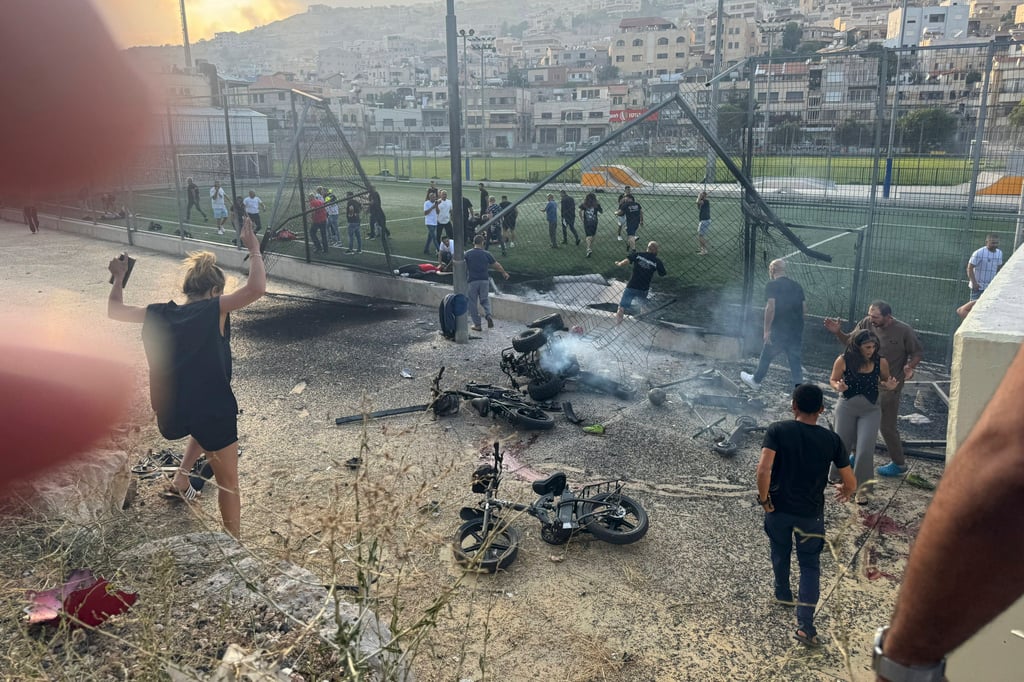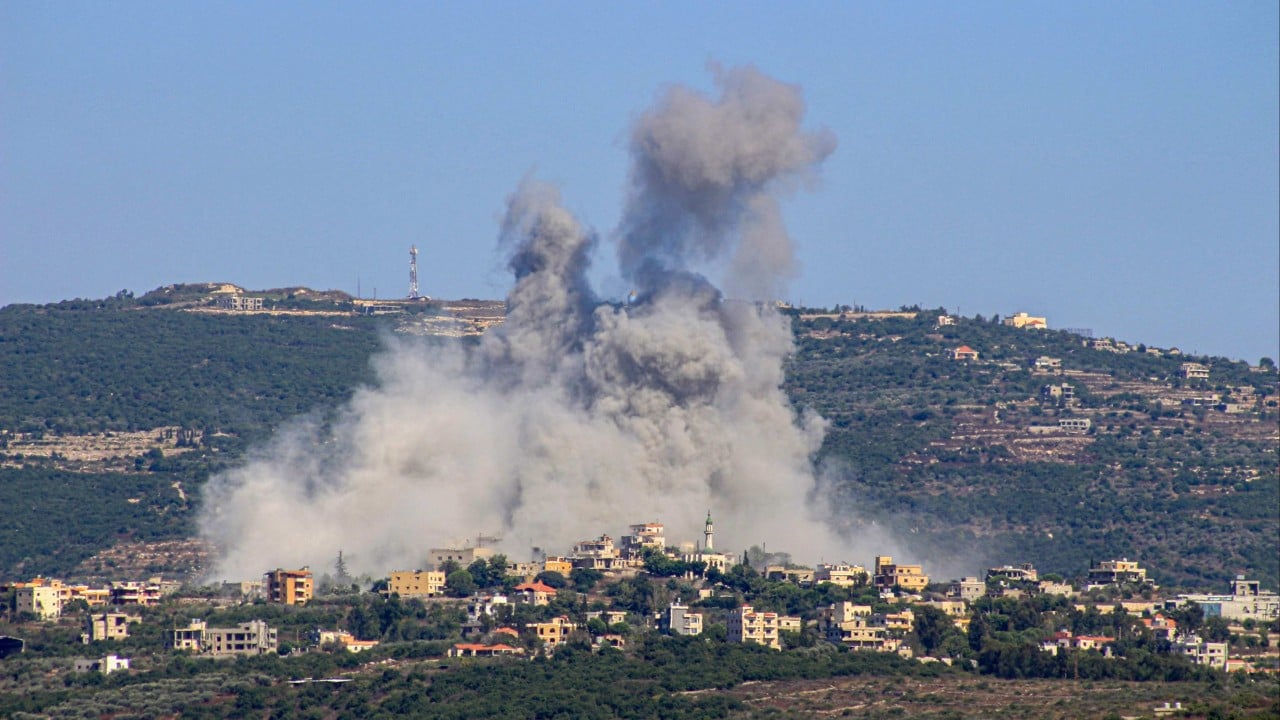Hezbollah has evacuated positions in south and east Lebanon after Israeli threats of reprisals for a deadly strike on the annexed Golan Heights, a source close to the group said on Sunday.
Israeli Defence Minister Yoav Gallant vowed to “hit the enemy hard” a day after rocket fire from Lebanon killed 12 children and teenagers in Majdal Shams, again raising fears that the war in Gaza will spread.
Israel blamed Lebanon’s Hezbollah movement for firing a Falaq-1 Iranian rocket but the Iran-backed group – which has regularly targeted Israeli military positions – said it had “no connection” to the incident.
“Hezbollah has evacuated some positions in the south and in the Bekaa valley that it thinks could be a target for Israel,” the source close to the group told Agence France-Presse, requesting anonymity as they were not authorised to speak to the media.

Israeli Prime Minister Benjamin Netanyahu’s office said a security cabinet meeting had concluded and its members had authorised the prime minister and defence minister to determine the “type” and “timing” of Israel’s response to the attack
Hezbollah has a strong presence in east Lebanon’s Bekaa valley, which borders Syria, and in south Lebanon, where it has been launching near daily attacks on Israeli positions since October in support of ally Hamas.
The cross-border exchanges of fire have largely been limited to the border area, but Israel has repeatedly struck deep inside Lebanon, including overnight.
Hezbollah is also deployed in Syria, where for years it has been fighting in support of President Bashar al-Assad in his country’s civil war.
The Syrian Observatory for Human Rights, a war monitor, said pro-Iran groups and Hezbollah-affiliated fighters have “evacuated their positions” south of the capital and in the Damascus countryside, as well as in parts of the Syrian-controlled Golan Heights, in anticipation of “potential Israeli air strikes”.
Hezbollah had already abandoned positions in Syria in early June after Israeli raids, according to the Britain-based Observatory, which relies on a network of sources on the ground.
Since Syria’s civil war erupted in 2011, Israel has carried out hundreds of strikes in the country, mainly targeting army positions and Iran-backed fighters, including from Hezbollah.
The raids also seek to cut off Hezbollah supply routes to Lebanon.
Israeli authorities rarely comment on individual strikes in Syria, but have repeatedly said they will not allow arch-enemy Iran to expand its presence there.
Israel’s raids on Syria intensified after Palestinian militant group Hamas’s October 7 attack on Israel sparked war in Gaza, then eased after an April 1 strike blamed on Israel hit the Iranian consular building in Damascus.
That strike prompted Iran to launch a first-ever direct missile and drone attack against Israel on April 13-14, sending regional tensions skyrocketing.
Lebanon’s Middle East Airlines said in a statement that it had rescheduled a number of flights on Sunday and Monday, citing “technical reasons related to the distribution of [aircraft] insurance risks”.
In October, the carrier said it was relocating some planes abroad in light of regional developments.
During a 2006 war between Israel and Hezbollah, Israel struck Beirut airport, Lebanon’s only international facility.
The cross-border violence since October has killed at least 527 people in Lebanon according to an Agence France-Presse tally, most of them fighters but also including 104 civilians.
On the Israeli side, 22 soldiers and 24 civilians have been killed, according to Israeli authorities.
Israeli strikes have killed at least 25 Hezbollah fighters in Syria since the Gaza war erupted, according to an Agence France-Presse tally.
Turkish President Tayyip Erdogan, meanwhile, said on Sunday that Turkey might enter Israel as it had done in the past in Libya and Nagorno-Karabakh, though he did not spell out what sort of intervention he was suggesting.
Erdogan, who has been a fierce critic of Israel’s offensive in Gaza, started discussing that war during a speech praising his country’s defence industry.
“We must be very strong so that Israel cannot do these ridiculous things to Palestine. Just like we entered Karabakh, just like we entered Libya, we might do similar to them,” Erdogan told a meeting of his ruling AK Party in his hometown of Rize.
“There is no reason why we cannot do this … We must be strong so that we can take these steps,” Erdogan added in the televised address.
AK Party representatives did not respond to calls asking for more detail on Erdogan’s comments. Israel did not immediately make any comment.
The president appeared to be referring to past actions by Turkey.
In 2020, Turkey sent military personnel to Libya in support of the United Nations-recognised Government of National Accord of Libya.
Libyan Prime Minister Abdulhamid al-Dbeibah, who heads the Government of National Unity in Tripoli, is backed by Turkey.
Turkey has denied any direct role in Azerbaijan’s military operations in Nagorno-Karabakh, but said last year it was using “all means”, including military training and modernisation, to support its close ally.
Additional reporting by Reuters


